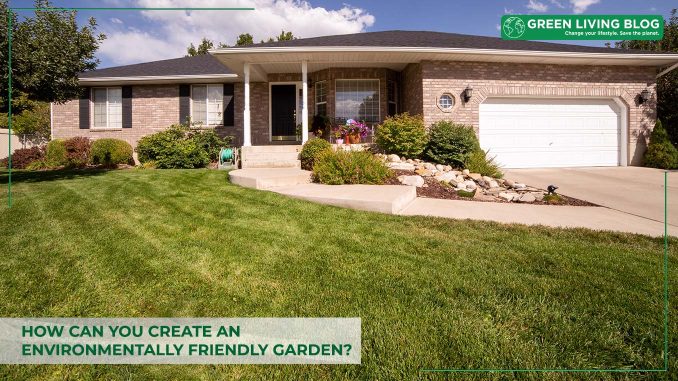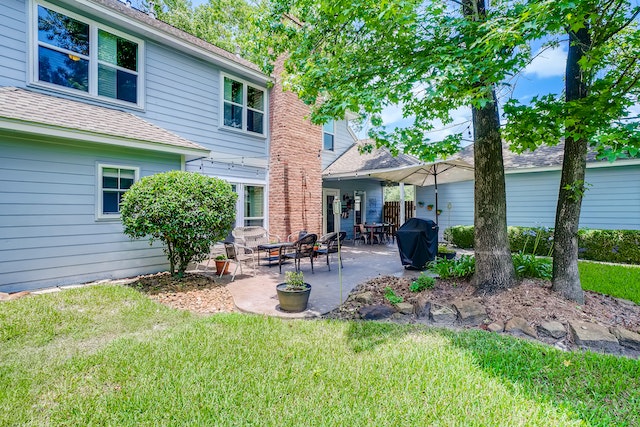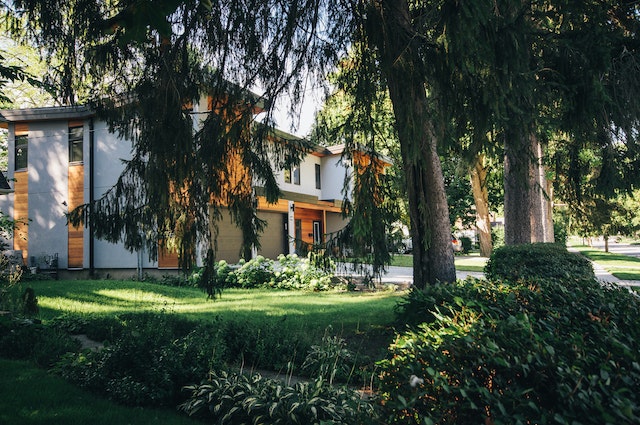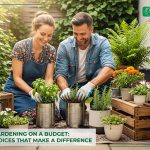
Environmentalism has become a pressing concern in recent years, with every announcement from the Intergovernmental Panel on Climate Change being met with widespread media attention.
But caring for the environment isn’t just something that we should be doing as a species, or even as a nation: if you’ve got your own little patch of Planet Earth to take care of, then why not ensure that it forms a seamless part of the natural environment, rather than a blight on it?
What makes an environmentally friendly garden?
Ideally, your garden should provide a space for local species of wild plants and animals to grow. This might also provide you with a valuable source of compost, too.
You can learn more about sustainable landscaping here and worm farming as an option to offer more local species a thriving environment.

What are the benefits of an environmentally friendly garden?
There are a few benefits to consider, besides the direct ones. Yes, an environmentally friendly garden is, by definition, better for the environment.
But it might also provide an interesting place to look at and care for. You’ll also get the satisfaction of spotting local wildlife species, which can be rewarding if you live in a built-up urban area.
And you can upgrade your backyard sustainably to add value to your home and the planet.
How can you create an environmentally friendly garden?
Lawn and plant care should be your priorities. You’ll want to make minimal use of artificial pesticides, which have a habit of indiscriminately killing things that aren’t pests.
For best results, you might elevate your precious plants away from would-be pests, with the help of raised beds.
You might also attract the right sorts of predatory insect species to your space, with the help of the right kinds of plants.
Here’s where the investment in a few choice tools can be invaluable. A Milwaukee mitre saw might make quick work of railway sleepers and other long pieces of timber, converting them quickly into gorgeous raised planters to display your best plants throughout the year.

Composting
Composting is the practice of using decayed organic matter to fertilise new growth. Put simply, you leave bits of grass and leftovers from your kitchen in a bin for long enough, and they’ll be broken down into fertiliser you can use to nourish your soil.
This means less money spent on fertiliser, and a more sustainable garden in the long term.
Growing produce
If you can use your garden to grow edible plants, then you might boost the environment indirectly by taking a little bit of strain away from farms, and the infrastructure required to get products into your fridge!
Use your garden to grow to produce, and you might have access to the freshest possible ingredients every time you go to make something.
You’ll also be able to cultivate particular rare species that might not be so common on supermarket shelves!
![]()
Author Profile

- Eco Warrior by day, Eco Blogger by night trying to get the eco balance right.
Latest entries
 Green GuidesNovember 3, 2025The Beginner’s Guide to Making Your Own Nontoxic Candles at Home
Green GuidesNovember 3, 2025The Beginner’s Guide to Making Your Own Nontoxic Candles at Home Green Home GuidesOctober 14, 2025What are Eco-Friendly Tissue Options for Modern UK Homes?
Green Home GuidesOctober 14, 2025What are Eco-Friendly Tissue Options for Modern UK Homes? Best practicesSeptember 17, 20253 Ways Young Families Can Commit to Sustainable Living
Best practicesSeptember 17, 20253 Ways Young Families Can Commit to Sustainable Living EnvironmentSeptember 9, 2025Eco-friendly Gardening on a Budget: 6 Sustainable Choices that make a Difference
EnvironmentSeptember 9, 2025Eco-friendly Gardening on a Budget: 6 Sustainable Choices that make a Difference





Leave a Reply
You must be logged in to post a comment.